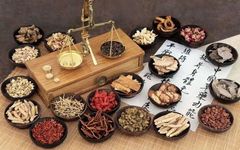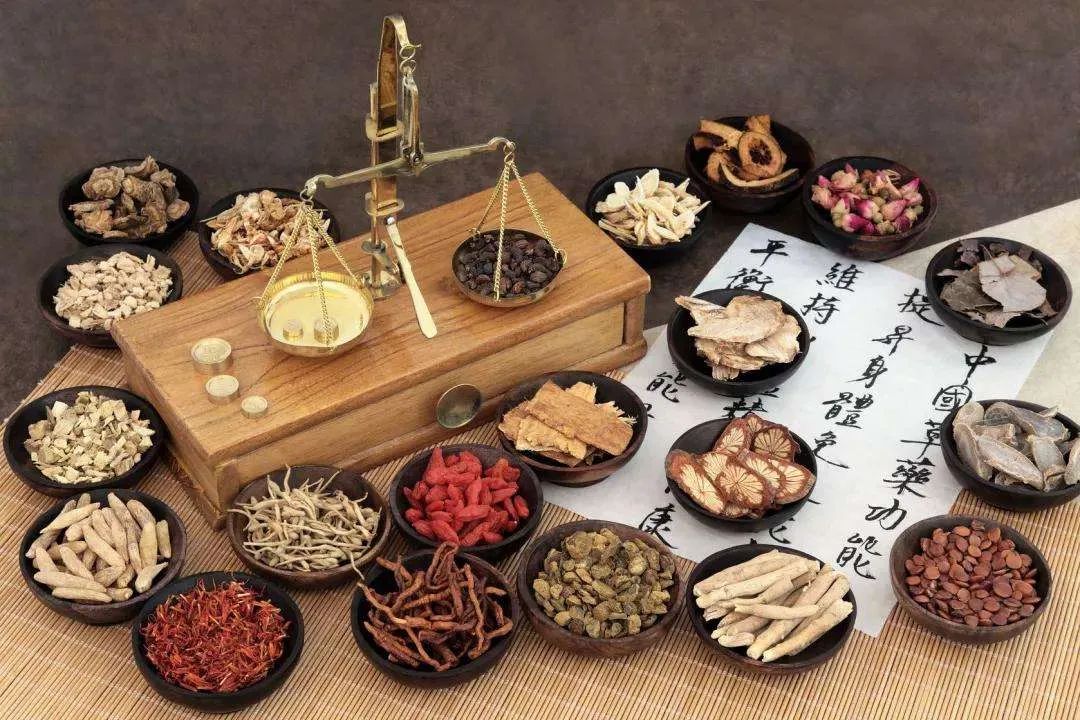
In Traditional Chinese Medicine (TCM), “Qi” has two meanings: one refers to the subtle substances that constitute and sustain human life activities, such as the breath (huǒ qì) and the essence of food (shuǐ gǔ qì); the other refers to the functions of the organs, such as the Qi of the organs (zàng fǔ zhī qì) and the Qi of the meridians (jīng luò zhī qì). These two types of Qi work together to maintain all bodily functions. In the elderly, the decline in organ function leads to insufficient biochemical production of Qi, making Qi deficiency (qì xū) a physiological norm that requires regular supplementation.
Foods that nourish Qi include beef, pork, fish, milk, eggs, soy products, yam (shān yào), white lentils (bái biǎn dòu), longan (guì yuán), jujube (dà zǎo), walnuts (hé táo), and peanuts (huā shēng), which all have good Qi-replenishing effects. Chinese herbs such as ginseng (rén shēn), astragalus (huáng qí), codonopsis (dǎng shēn), white atractylodes (bái zhú), eleutherococcus (cì wǔ jiā), rhodiola (hóng jǐng tiān), lotus seeds (lián zǐ), and licorice (gān cǎo) are excellent for Qi replenishment. Regular practice of Tai Chi (tài jí quán) and Ba Duan Jin (bā duàn jīn) can also help nourish Qi. It is important to avoid overexertion and prolonged bed rest, as both are detrimental to Qi nourishment.
1. Ginseng Strongly Replenishes Original Qi
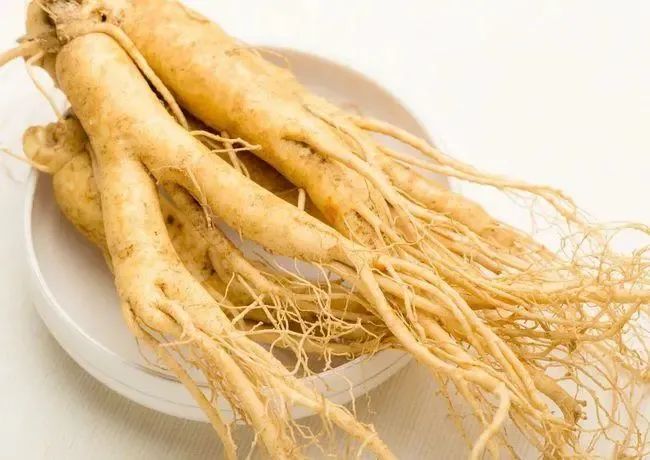
Modern research has proven that ginseng has effects such as raising blood pressure, anti-shock, and strengthening the heart; it can enhance the flexibility of neural activity processes and improve cognitive function; it has anti-fatigue effects, promotes protein and genetic synthesis, enhances hematopoietic system function, and regulates cholesterol metabolism; it can boost immune function and enhance gonadal function, exhibiting gonadotropin-like effects; it can lower blood sugar. Additionally, it has anti-inflammatory, anti-allergic, diuretic, and anti-tumor properties. Its applications are as follows:
1. Greatly Replenishing Original Qi: Used for symptoms of extreme Qi deficiency. It can restore pulse and stabilize collapse, making it a crucial medicine for rescuing from critical conditions caused by excessive sweating, diarrhea, blood loss, or severe illness.
2. Tonifying the Spleen and Benefiting the Lungs: Can improve symptoms of shortness of breath and weak voice due to lung Qi deficiency; can alleviate fatigue, poor appetite, and loose stools due to spleen deficiency; also benefits heart Qi, improving palpitations, chest tightness, and weak pulse symptoms. This herb also has a tonifying effect on kidney Qi, useful for shortness of breath due to kidney Qi deficiency and can be used for kidney deficiency-related impotence.
3. Generating Fluids and Quenching Thirst: American ginseng (xī yáng shēn) is used for heat illness with Qi deficiency and fluid damage causing thirst, as well as diabetes. For heat illness with both Qi and fluid damage, presenting with thirst and weak pulse, this herb can both replenish Qi and generate fluids. In diabetes, which often presents with Yin deficiency and dryness heat, and damage to both Qi and Yin, American ginseng can replenish Qi and generate fluids, making it commonly used in formulas for treating thirst.
Usage: Brew alone with low heat, drink the juice and discard the residue, or add ginseng juice to other herbal juices for consumption. For health maintenance, the daily dosage is 3 grams; for treating collapse and shock, it can be used up to 30 grams; ginseng can be dried and ground into powder, taken with boiling water, 1-2 grams per dose.
Precautions: Avoid pairing with Li Lu (反藜芦) and Wu Ling Zhi (畏五灵脂); do not use iron utensils; avoid consuming with radishes and tea; those with sufficient righteous Qi should avoid it.
2. Astragalus: A Warm and Nourishing Qi Herb
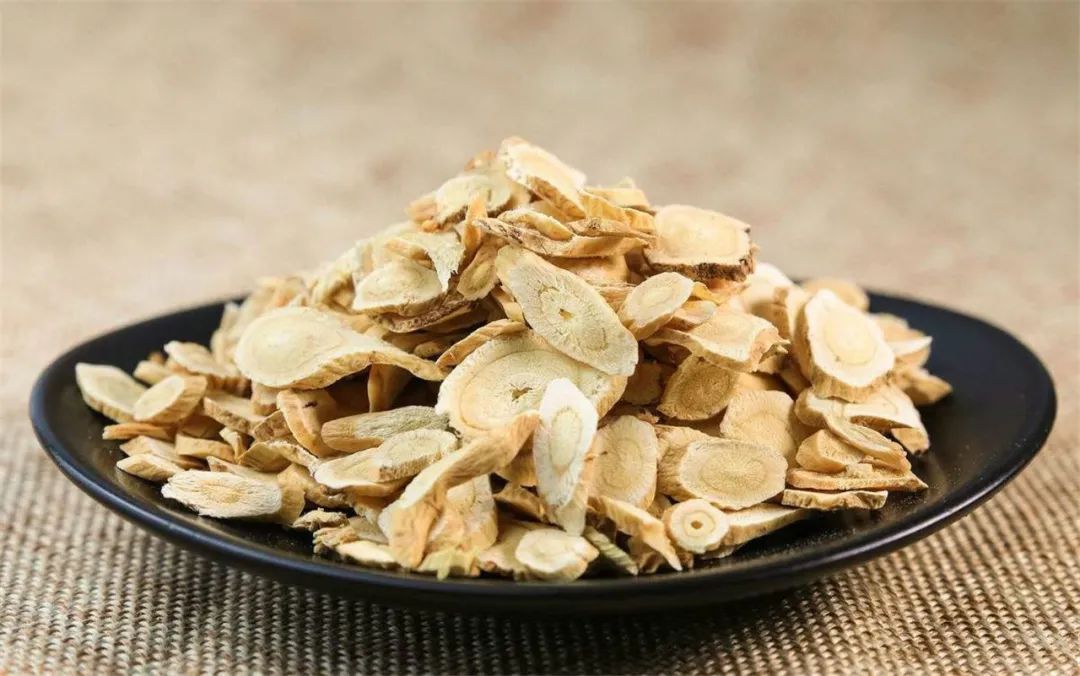
Astragalus, while being a Qi-replenishing herb, also nourishes both Qi and blood, as well as Yin and Yang, with a warm and gentle nature unlike the strong effects of ginseng. The renowned TCM physician Zhu Shen Yu referred to astragalus as the “king of tonics.”
Studies have shown that astragalus promotes vigorous growth of all body cells, extends lifespan, enhances immune function, delays the decline of bodily functions in the elderly, and aids in the recovery from chronic diseases, playing an important role in anti-aging applications. The decoction of astragalus has antibacterial and antiviral effects. Its applications are as follows:
1. Strengthening the Spleen and Nourishing the Center: Used for symptoms of fatigue, poor appetite, and loose stools due to spleen Qi deficiency. This herb is sweet and warm, good for entering the spleen and stomach, making it a key herb for tonifying the center and benefiting Qi.
2. Lifting Yang and Raising the Prolapse: Used to treat chronic diarrhea and prolapse of the rectum due to spleen Qi deficiency.
3. Benefiting the Wei Qi and Stabilizing the Exterior: Used for lung Qi deficiency and spontaneous sweating due to Qi deficiency. It can tonify lung Qi, commonly used for those with weak lung Qi and chronic cough, as well as for the weak to prevent colds.
4. Expelling Toxins and Generating Flesh: Used for Qi and blood deficiency, difficult-to-heal sores, or ulcers that are slow to heal. This herb can support righteous Qi and expel pus and toxins; in the later stages of ulcers, with clear and thin pus and difficult healing, this herb can replenish Qi and blood, promoting flesh generation and wound healing.
Usage: Astragalus is best used roasted for tonifying Qi; for other uses, it is often used raw. When decocting, use 15-20 grams of astragalus, boil in water, strain, and take the juice, once daily in two doses. When used with other herbs, the general amount is 10-60 grams.
Precautions: Those with cold, fever, or fullness in the chest and abdomen should avoid using astragalus; it should not be used in the early stages of boils or when heat toxins are still strong.
3. Codonopsis: A Harmonious Qi-Replenishing Herb
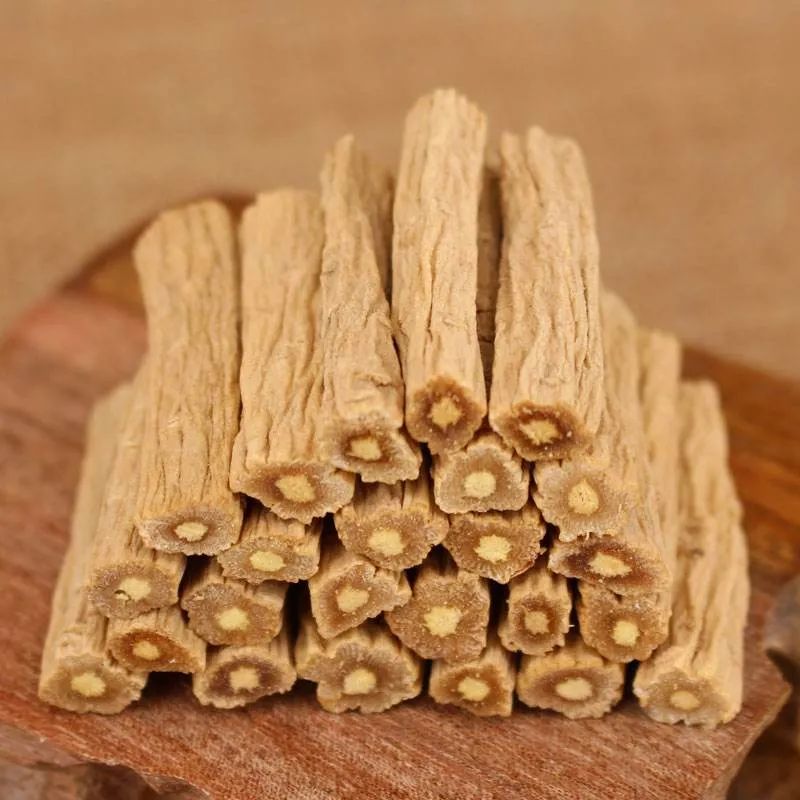
Research has shown that codonopsis has a stimulating effect on the nervous system, enhancing the body’s resistance; it regulates gastrointestinal motility, inhibits gastric acid secretion, and lowers gastric protease activity; it can increase red blood cells and hemoglobin in rabbits, and has a boosting effect on leukocyte counts decreased by chemotherapy and radiotherapy; it can dilate peripheral blood vessels and lower blood pressure, while also inhibiting the pressor effect of adrenaline. Its applications are as follows:
1. Tonifying the Center and Benefiting Qi: Used for symptoms of shortness of breath and weak voice, fatigue, poor appetite, and chronic diarrhea due to lung and spleen Qi deficiency.
2. Generating Fluids and Nourishing Blood: Used for symptoms of pale complexion, dizziness, palpitations, and dry mouth due to blood deficiency and fluid loss.
Usage: Codonopsis 15-20 grams can be decocted in water, strained, and taken in two doses daily. It can also be added to dishes or cooked with other ingredients; alternatively, the juice can be boiled with glutinous rice to make a porridge.
Precautions: Patients with excess conditions or heat conditions should avoid it. Avoid pairing with Li Lu (反藜芦) and Wu Ling Zhi (畏五灵脂).

Images sourced from the internet for non-profit purposes. If there are any copyright issues, please contact us for removal.
Exciting Article Recap
[Health Network University] What is the “Health Guide” Cloud Classroom?
[Disease Prevention] Pay attention to these signals from your body, beware of stroke!
[Scientific Rumor List] Baby teeth that are decayed do not need treatment
[Diet and Nutrition] How to enjoy hot pot healthily and deliciously
[Disease Prevention] Pay attention to these signals from your body, beware of stroke!
[Disease Prevention] How to prevent and treat skin itching
[Leisure and Health] Five tips for a safe winter
The “Health Guide” magazine has awarded Weikang Hospital the title of strategic partner in health science popularization.
These six common medicines should not be taken with hot water! Otherwise, it will be in vain!
Healthy China Media Partners
end


